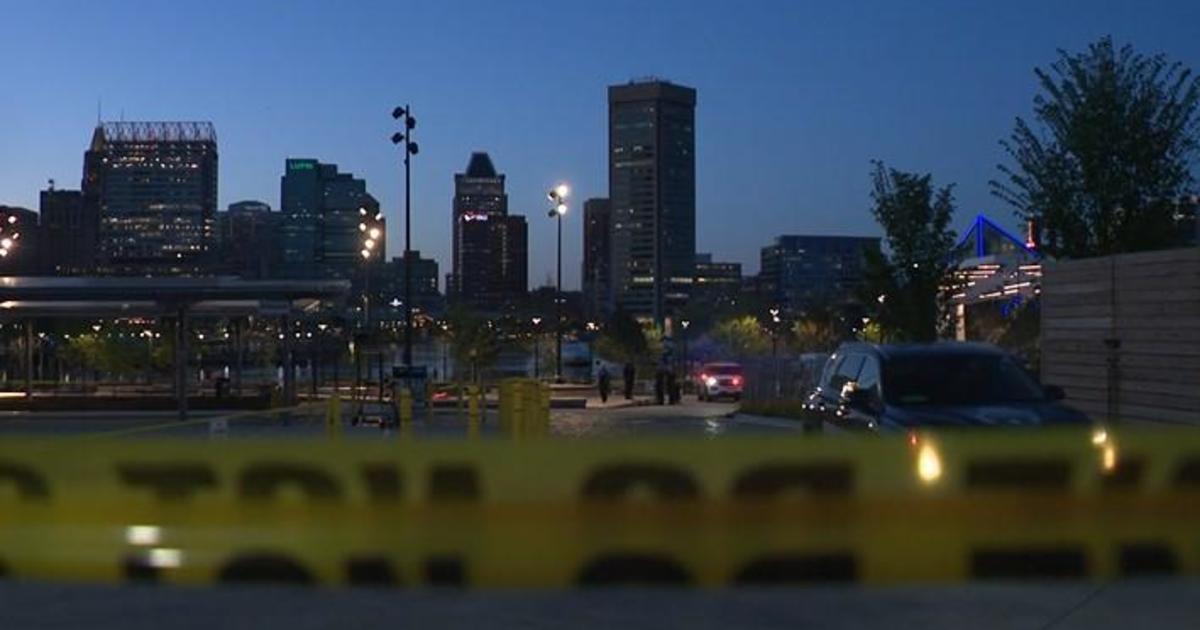Suit Moves Forward In Police Death Of Md. Man With Down Syndrome
BALTIMORE (AP) -- A federal judge has allowed a lawsuit to move forward against three Frederick County sheriff's deputies in the death of a young man with Down syndrome.
In a scathing, 54-page ruling, U.S. District Judge William Nickerson wrote that "a man died over the cost of a movie ticket" and questioned the quick escalation of force used by the deputies.
Robert Ethan Saylor, 26, died of asphyxiation last January after the deputies, moonlighting as mall security officers, were called to remove him from a movie theater in Frederick. Saylor had watched "Zero Dark Thirty" with his caregiver and had gone back into the theater for a repeat showing without paying for another ticket.
The deputies wrestled the flailing, cursing, nearly 300-pound Saylor out of his seat and down an exit ramp, where they handcuffed him after police say he fell or was dropped onto his belly. He went into cardiac arrest, lost consciousness, and died shortly after.
The state medical examiner's office ruled Saylor's death a homicide, meaning he would not have died except for the officers' actions. A county grand jury declined to file charges against the deputies.
In Thursday's ruling, Nickerson dismissed all the lawsuit's claims against the movie theater's operator, Knoxville, Tennessee-based Regal Cinemas, finding that the company did not violate the Americans with Disabilities Act by asking the sheriff's deputies to remove Saylor. Nickerson also dismissed wrongful death claim against the state and a simple negligence claim against the deputies.
The claims Nickerson allowed to move forward were that the deputies were grossly negligent and that the state failed to properly train them to handle people with disabilities.
The judge noted that Saylor had an IQ of 40, and his caregiver warned the deputies that he would resist if touched by strangers.
Deputies could have waited for Saylor's aide or his mother to coax him out of his seat or allow them to buy a ticket for the next show and let him stay, Nickerson wrote, according to The Washington Post.
"When the deputies were presented with these various alternatives, there was no emergent situation requiring any rapid response on their part," he wrote.
He said it was a reasonable assumption that Saylor would suffer significant injuries when "the decision was made to drag an obese individual with a mental disability out of his chair and down a ramp."
Joseph Espo, the attorney who represents the Saylor family, said Nickerson's ruling is a "strong affirmation of the rights of individuals to live in the world and take part in the community."
"(It) affirms the fact that if the state fails to train its employees, then the state may be responsible," he said.
Daniel Karp, a Baltimore lawyer for the deputies, noted that Nickerson mentioned several discrepancies concerning important facts of the case, such as exactly when during the struggle Saylor was handcuffed and how he ended up on the floor.
"You can't tell from the allegations how many times the deputies tried to tell (Saylor) that he either had to pay or leave and how abusive and uncooperative Mr. Saylor was," Karp said. "This was a fairly extended incident, and the deputies are trained in how to escalate."
Karp said that once all witnesses involved in the case are interviewed, he will again try to get the entire case thrown out before trial.
------
(Copyright 2013 by The Associated Press. All Rights Reserved.)



